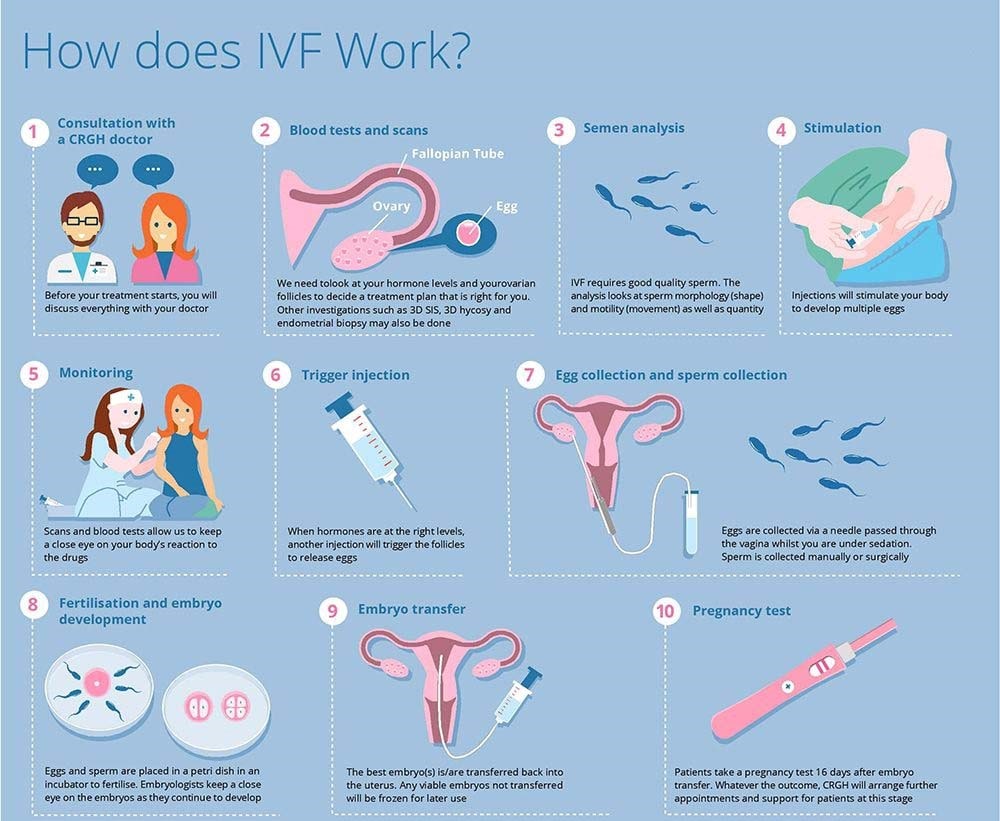
IVF Treatment In Delhi
In Vitro Fertilization (IVF) is a medical procedure that has offered hope and success to countless couples struggling with infertility. Ivf Treatment It is a complex and multifaceted treatment that involves combining an egg and sperm in a laboratory setting to create an embryo, which is then transferred into the woman’s uterus. IVF Treatment has become one of the most common and successful fertility treatments, and it has helped numerous individuals and couples achieve their dreams of parenthood. In this comprehensive guide, we will delve into the various aspects of IVF treatment, from initial assessment to post-treatment care, to provide a thorough understanding of the process. Ivf In Delhi – Next Baby Centre
1. Initial Consultation and Evaluation:
The IVF journey begins with an initial consultation with a reproductive endocrinologist, a fertility specialist. During this consultation, the medical history of both partners is discussed, and various diagnostic tests are performed to determine the cause of infertility. Common tests include semen analysis for the male partner, hormonal assessments, ultrasound examinations, and hysterosalpingography (HSG) to assess the condition of the fallopian tubes and uterus in the female partner. These evaluations help the medical team develop a personalized treatment plan based on the specific infertility factors. Ivf In Delhi – Next Baby Centre
2. Ovarian Stimulation:
Once the cause of infertility is determined, the woman typically undergoes ovarian stimulation. The aim is to stimulate the ovaries to produce multiple mature eggs. Fertility medications, such as follicle-stimulating hormone (FSH) and luteinizing hormone (LH), are prescribed. The response to these medications is closely monitored through blood tests and transvaginal ultrasounds. Adjustments to the medication dosage may be made as needed. Ivf In Delhi – Next Baby Centre
3. Egg Retrieval:
When the ovarian follicles have matured, a minor surgical procedure known as egg retrieval is performed. It is conducted under light anesthesia or sedation to ensure the patient’s comfort. Using a thin needle guided by ultrasound, the doctor retrieves the mature eggs from the ovaries. These eggs are then placed in a specialized culture medium and transferred to the IVF Treatment laboratory. Guaranteed Ivf Centre in Delhi – Next Baby Centre
4. Sperm Collection and Preparation:
On the day of egg retrieval, the male partner (or a sperm donor) provides a semen sample. The sperm is carefully processed to select the healthiest and most motile sperm for fertilization. In some cases of severe male infertility, Intracytoplasmic Sperm Injection (ICSI) may be used. ICSI involves the direct injection of a single sperm into each mature egg to enhance the chances of fertilization. Guaranteed Ivf Centre in Delhi – Next Baby Centre
5. Fertilization and Embryo Culture:
The retrieved eggs and prepared sperm are combined in a controlled laboratory environment for fertilization. The resulting embryos are cultured for several days under precise conditions that mimic the fallopian tube environment. During this time, the embryologists monitor the embryos’ development and assess their quality.
Ivf Cost In Delhi – Next Baby Centre
6. Preimplantation Genetic Testing (PGT):
In some cases, couples may opt for Preimplantation Genetic Testing (PGT) to screen the embryos for genetic abnormalities before transfer. PGT can help identify healthy embryos, reducing the risk of transferring embryos with genetic issues. Ivf Cost In Delhi – Next Baby Centre
7. Embryo Transfer:
The most highly developed and viable embryos are selected for transfer into the woman’s uterus. This is typically performed on day 3 or day 5, depending on the clinic’s protocol and individual circumstances. The procedure is minimally invasive and usually does not require anesthesia. A thin catheter is used to place the embryos into the uterine cavity. The number of embryos transferred is determined based on factors such as the woman’s age, embryo quality, and previous Ivf treatment history. Ivf Cost In Delhi – Next Baby Centre
8. Luteal Phase Support:
After the embryo transfer, hormonal support is provided to maintain the uterine lining and support early embryo development. This may involve progesterone supplementation through injections, vaginal suppositories, or oral medications. Ivf Cost In Delhi – Next Baby Centre
9. Pregnancy Test and Follow-Up:
Approximately 10-14 days after the embryo transfer, a blood test is conducted to determine if pregnancy has occurred. If the test is positive, further monitoring, including ultrasound examinations, will be scheduled to confirm the viability of the pregnancy. In the case of a negative test, the medical team will discuss the next steps and potential modifications to the treatment plan. Ivf Centre Near Me – Next Baby Centre
10. Cryopreservation and Future Cycles:
Excess embryos that are of good quality but not transferred can be cryopreserved (frozen) for future use. This provides an opportunity for additional IVF cycles without the need for a complete treatment cycle. Ivf In Delhi – Next Baby Centre
Factors Influencing IVF Success:
The success of IVF treatment can be influenced by various factors:
Age: A woman’s age is a critical determinant of IVF success. Younger women tend to have higher success rates as they typically produce healthier eggs. Ivf Centre Near Me – Next Baby Centre
Infertility Diagnosis: The specific cause of infertility can impact success rates. Some conditions, such as tubal blockages or severe male factor infertility, may reduce the chances of success. Guaranteed Ivf Centre in Delhi – Next Baby Centre
Embryo Quality: The quality of embryos is crucial. Healthy, well-developed embryos have a higher likelihood of implantation and successful pregnancy.
Number of Embryos Transferred: The number of embryos transferred can affect the likelihood of multiple pregnancies. This decision is made in consultation with the medical team.
Lifestyle Factors: Smoking, excessive alcohol consumption, and obesity can negatively impact IVF success. Leading a healthy lifestyle can improve the chances of success.
Individual Response to Medications: The way a woman’s body responds to ovarian stimulation medications can affect the number and quality of eggs retrieved. Ivf Treatment.
Previous IVF Cycles: The history of prior IVF cycles and their outcomes can provide insight into potential success in subsequent cycles. Ivf Treatment.
Costs and Insurance:
IVF treatment can be expensive, and costs may vary depending on the clinic, the treatment plan, and the need for additional services like PGT. Many insurance plans do not fully cover fertility treatments, so patients should carefully consider the financial aspects of IVF and explore any available insurance options. Ivf Treatment.
Emotional and Psychological Support:
The IVF journey can be emotionally challenging, with ups and downs. Many couples find it helpful to seek emotional support through counselling, support groups, or by leaning on their friends and family for encouragement. Ivf Treatment.
In conclusion, In Vitro Fertilization (IVF) is a widely used fertility treatment that has brought hope to many individuals and couples facing infertility. The process involves multiple steps, from initial evaluation to embryo transfer, with the aim of achieving a successful pregnancy. Ivf Treatment success rates can be influenced by various factors, and it’s essential to work closely with a qualified medical team to develop a personalized treatment plan. While IVF can be a demanding and costly journey, the potential reward of a successful pregnancy and the birth of a child often makes it a worthwhile pursuit for those struggling with infertility. Guaranteed Ivf Centre in Delhi – Next Baby Centre

